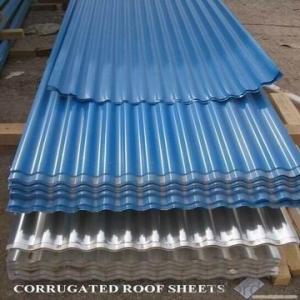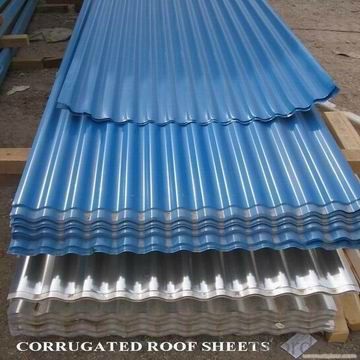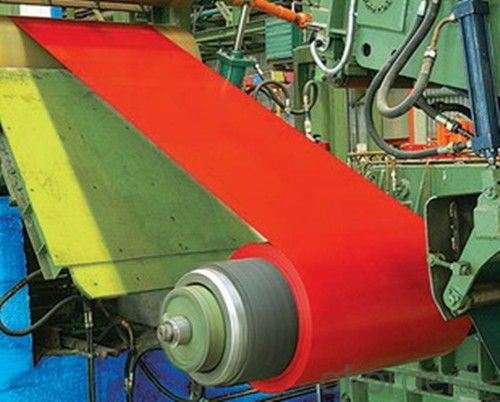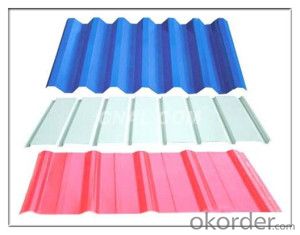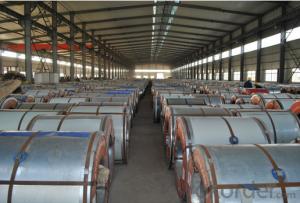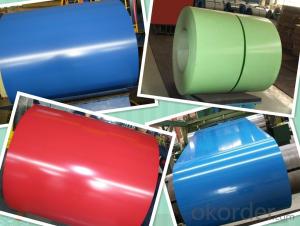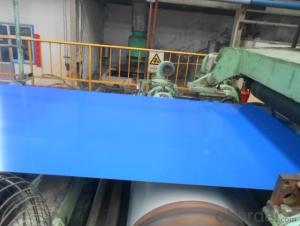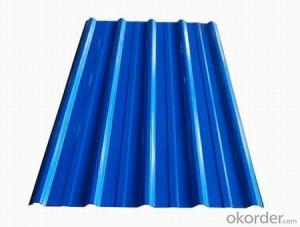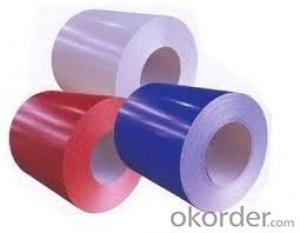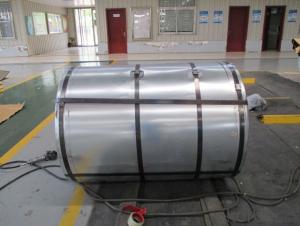ppgi/Hot Sale Building and Electrical Steel Coil/Corrugated Roofing Sheets/ Galvanized Steel Coil
- Loading Port:
- Tianjin
- Payment Terms:
- TT OR LC
- Min Order Qty:
- 25 m.t.
- Supply Capability:
- 50000 m.t./month
OKorder Service Pledge
OKorder Financial Service
You Might Also Like
Specification
Hot Sale Building and Electrical Steel Coil/Corrugated Roofing Sheets/ Galvanized Steel Coil
1. Application of Building and Electrical Steel Coil:
Construction, the manufacturing of cars, ships,containers and household electric appliances, other industries usage
they are mainly used in construction, light industry, automobile, agriculture, animal husbandry, fishery and commerce, etc industries.
.Manufacture anticorrosion, industrial and civil architecture roof boarding, roof grille.
.Make home appliance’s case, civil chimney, kitchen utensils, etc
.Corrosion resistant parts of cars
.Food storage, meat and aquatic products’ freezing and processing equipment etc;
.The equipments to store and transport materials, and packing implements.
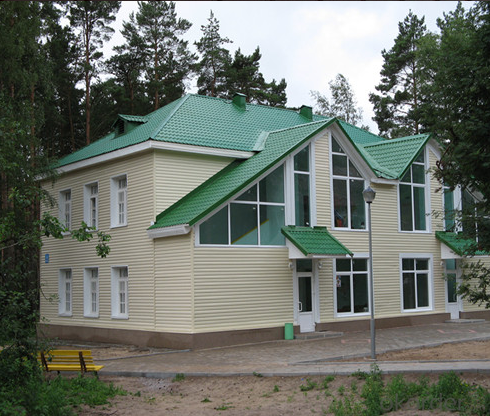
2.Features of Building and Electrical Steel Coil:
* uses hot dip galvanized steel sheet as the base material
* zinc layer protection, dope on the zinc layer can cover and protect the
steel base from corrosion
* color coated sheet is light, beautiful and has good anti-erosion performancevanized steel coil
* As a rich experience manufacturer, we provide quality product, competitive price and reliable after-sales service.
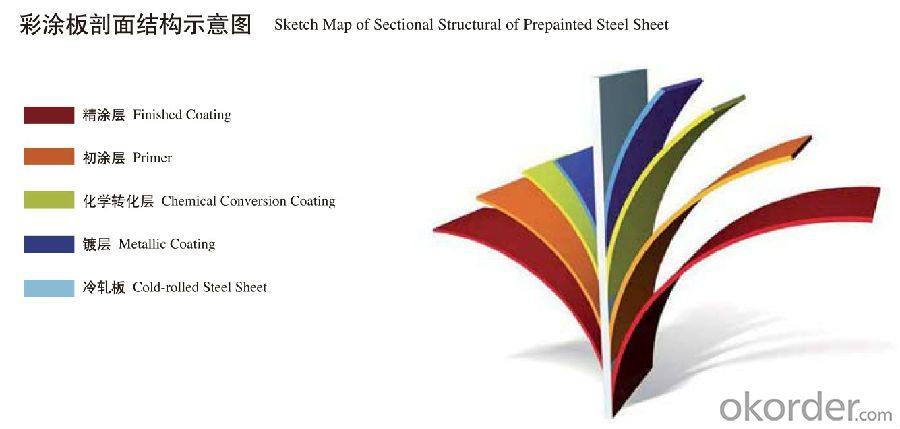
3.Surface Finish of Building and Electrical Steel Coil :
Surface finish | Pattern | Application |
Regular spangle | Standard spangles with flower pattern | General uses |
Small spanlge | Small spangles than regular | General painting applications |
Zero spangle | Extremely minimized spangles | Special painting applications |
4. Building and Electrical Steel Coil image:
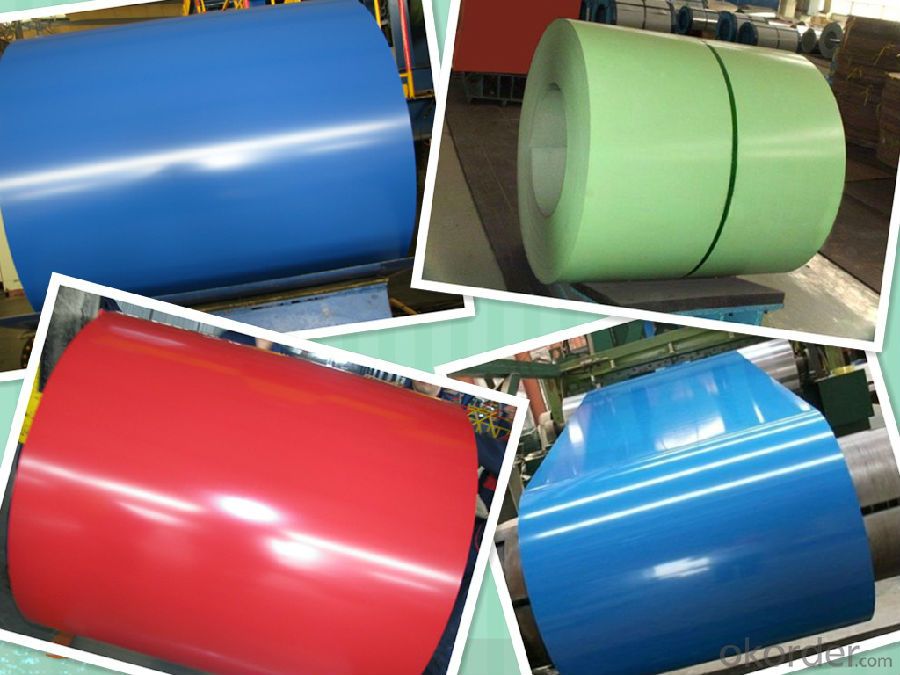
APPLICATION:
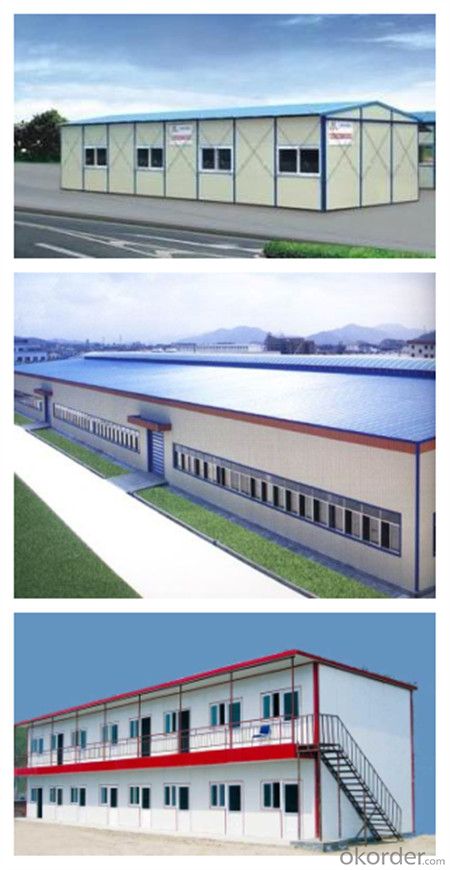
PROUDUCTION LINE:
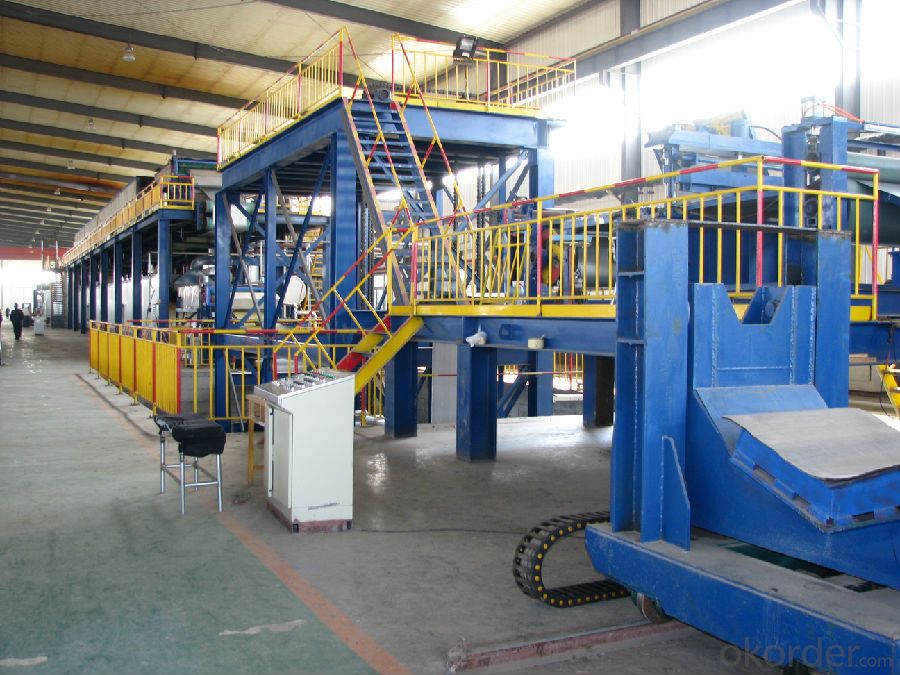
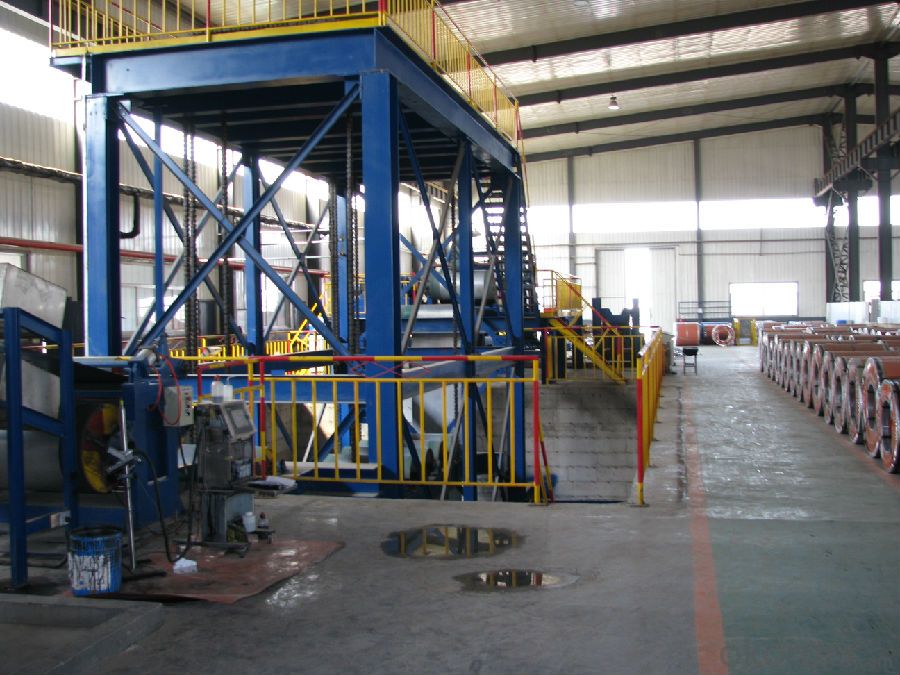
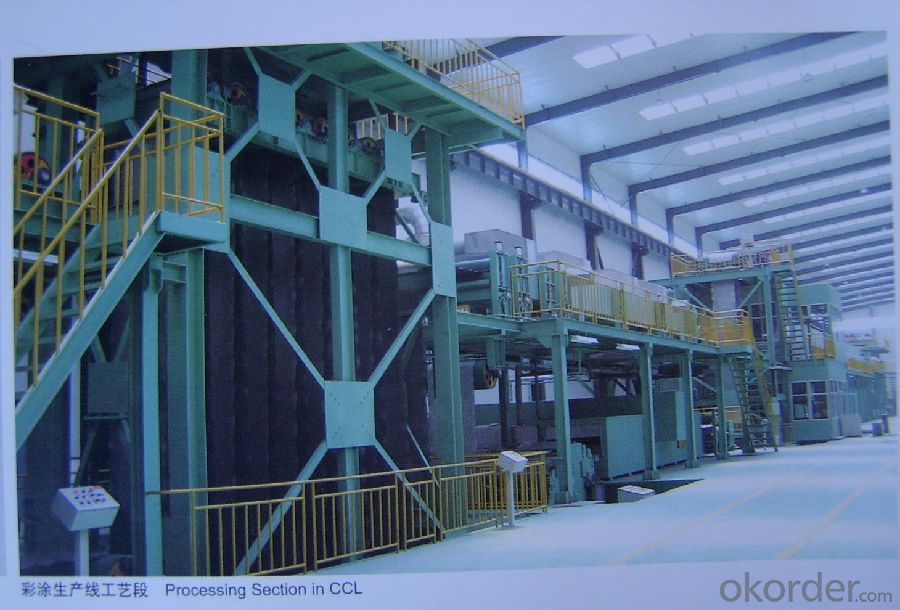
5.FAQ
We have organized several common questions for our clients,may help you sincerely:
①How about your Warranty?
Warranty: 1-Year for the whole light. Warranty is based on correct storage, installation, using and maintenanc
②How to guarantee the quality of the products?
We have established the international advanced quality management system,every link from raw material to final product we have strict quality test;We resolutely put an end to unqualified products flowing into the market. At the same time, we will provide necessary follow-up service assurance.
③How long can we receive the product after purchase?
In the purchase of product within three working days, We will arrange the factory delivery as soon as possible.
- Q: Why does steel with several composites have a greater hardenability from quenching than low carbon steel alloys?Any help would be great
- Bit tricky to explain and I don't know muh about it but steel on its own has lost of gaps in it ( the molecular structure) and when carbon is added thos gaps are filled, I think of it like this: it is easier to punch through expanded polystyrene( with all the little balls) than unexpanded(just a lump of plastic) as the balls are not properly joined and have air pockets between them.
- Q: I'm currently in an Estimating and Bidding class. I have to estimate two divisions for a multi-million dollar project. The project that I chose is around 6 million dollars and involves constructing a new gas/lighting building. I chose to estimate steel, and my question is, around how much out of the 6 million goes toward just the steel estimate? If it helps, this building is has two floors and is roughly about 100x70 feet. The building not wood construction, but rather steel and brick. How much of that 6 million would go into the steel? I'm not looking for anything exact, just roughly.
- That is a little tough to answer given the details. I will try to answer it as best I can. You can send me a message if you need further help and I can get some more details from you. If it is a 6 million dollar project, that is about $428/sf - (6 million divided by 14,000 sf). $428 is a little bit higher end then say, just a Walmart which is a block and steel box. Assuming you have a concrete slab on the first floor, metal deck on the second floor, with steel beams and open web joists framing, steel columns and steel roof framing with a metal deck roof.... you could be approx 10-15% of the total 6 million. Now, this would include the structural steel, not light gauge steel framing for walls. It sounds like you are looking for structural steel, not metal stud framing. Hopefully this helps, I can check back to this thread later to see if you've had to add any more details.
- Q: What are the common applications of pre-painted steel coils?
- Pre-painted steel coils, also referred to as pre-coated steel coils or color coated steel coils, are extensively utilized in a multitude of industries due to their versatility and endurance. The following are some of the prevalent uses of pre-painted steel coils: 1. Construction: In the construction sector, pre-painted steel coils are widely employed for roofing, wall cladding, and building panels. The array of colors available in pre-painted steel coils enables architects and designers to fashion visually pleasing structures. 2. Automotive: The automotive industry relies on pre-painted steel coils for fabricating car bodies, interior panels, and various other components. The corrosion resistance and superb finish provided by pre-painted steel coils make them the preferred choice in this field. 3. Appliances: Household appliances such as refrigerators, washing machines, and air conditioners incorporate pre-painted steel coils for their outer panels. The appealing colors and textures offered by pre-painted steel coils enhance the appearance of these appliances. 4. Electronics: The electronics industry also employs pre-painted steel coils for manufacturing cabinets and casings of electronic devices such as computers, televisions, and audio systems. The protective coating on pre-painted steel coils shields the electronic components from environmental factors. 5. Furniture: Pre-painted steel coils are utilized in the furniture industry for producing cabinets, shelves, and similar products. The extensive range of colors and finishes available in pre-painted steel coils enables furniture manufacturers to create visually appealing and long-lasting goods. 6. Signage and Advertising: In the signage and advertising sector, pre-painted steel coils are commonly used for manufacturing display boards, billboards, and signs. The vibrant colors and weather-resistant properties of pre-painted steel coils make them suitable for outdoor use. 7. Industrial Equipment: Pre-painted steel coils are employed in the manufacture of industrial equipment such as storage tanks, HVAC systems, and machinery components. The corrosion resistance and high strength of pre-painted steel coils make them suitable for these demanding applications. In conclusion, pre-painted steel coils find a wide range of applications in industries such as construction, automotive, appliances, electronics, furniture, signage, and industrial equipment. Their endurance, resistance to corrosion, and aesthetic appeal make them a popular choice for manufacturers in various sectors.
- Q: What are the different types of steel coil handling equipment used during processing?
- There are several types of steel coil handling equipment used during processing, including coil cars, coil upenders, coil tilters, coil transfer cars, coil grabbers, coil lifters, and coil reels. These machines are designed to efficiently handle and maneuver steel coils of various sizes and weights, ensuring safe and smooth operations during the processing stages.
- Q: I have a Charles Daly shotgun and I'm trying to find out if it is ok to shoot steel out of. The side engravings say: Charles Daly 20 GA 3 and the other side says : KBI-HBG, PA made in TurkeyOn their website it says that the barrel on the Charles Daly 300 Field is able to shoot steel but I don't see anywhere that this is a 300 model.Im also not sure if the choke is able to shoot steel. It has no engravings on it. How can I tell if this choke will work? It is the original choke that came with the gun?
- Kbi Shotguns
- Q: How do steel coils contribute to the manufacturing of electrical equipment?
- Due to their unique properties and versatility, steel coils play a crucial role in the manufacturing of electrical equipment. Transformer cores, essential components in electrical equipment, rely on steel coils for efficient energy transfer and reduced energy losses. The magnetic properties of steel make it an ideal material for transformer cores, allowing for the transformation of voltage levels and ensuring proper equipment functioning. In addition, steel coils are widely used in the production of motors and generators, which convert electrical energy into mechanical energy and vice versa. The coil shape of steel enables the creation of electromagnetic fields, necessary for the operation of motors and generators. Moreover, the strength and durability of steel coils enable them to withstand high temperatures and mechanical stresses commonly encountered in electrical equipment. Furthermore, steel coils are utilized in the construction of electrical conductors, including wires and cables, enabling the transmission of electricity from power sources to various electrical devices. Steel's high electrical conductivity ensures efficient power transmission, while also providing mechanical strength and protection against corrosion and wear. The coil shape of steel wires enhances their flexibility, making them suitable for various applications in electrical equipment manufacturing. Overall, steel coils make a significant contribution to the manufacturing of electrical equipment by providing the necessary magnetic properties for transformer cores, enabling the generation of electromagnetic fields in motors and generators, and facilitating efficient power transmission in electrical conductors. Their versatility, strength, and durability make them an indispensable component in the production of reliable and high-performance electrical equipment.
- Q: I need to know the density of steel as one of my physical properties of steel. Any answers? If u have more physical or chemical properties of steel, that would help to thanks.
- The short answer to your question is that the density of plain mild steel is 7.85. The long answer is that depending on where you look, or the grade of steel that you are talking about can change this value. A density of 7.88 is often quoted for mild steel as well. If you add alloying elements such as tungsten, chrome or manganese to improve the steel, the density will change. So the long answer is that the density of steel can vary between 7.75 and 8.05.
- Q: Help please.What atoms are there in steel?Like water is equals to 1 Oxygen atom + 2 Hydrogen atoms.Thnx 4 d help.
- Steel is mostly iron with a small amount (less than 1%) of carbon added. Stainless steel has other metals like chromium and nickel added.
- Q: I need help my new stainless steel cookware is sticking ? My first meal was nasty!
- You sure it's stainless steel? Quick test, is to put a magnet to it. Stainless steel won't stick to a magnet,Sorry your meal turned out icky. Bye
- Q: What are the weight ranges of steel coils?
- The weight ranges of steel coils can vary widely depending on the specific type and dimensions of the coil. However, typical weight ranges for steel coils can range from a few hundred kilograms to several tons.
Send your message to us
ppgi/Hot Sale Building and Electrical Steel Coil/Corrugated Roofing Sheets/ Galvanized Steel Coil
- Loading Port:
- Tianjin
- Payment Terms:
- TT OR LC
- Min Order Qty:
- 25 m.t.
- Supply Capability:
- 50000 m.t./month
OKorder Service Pledge
OKorder Financial Service
Similar products
Hot products
Hot Searches
Related keywords
